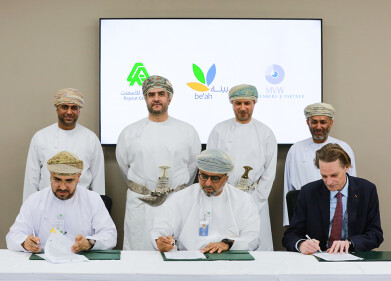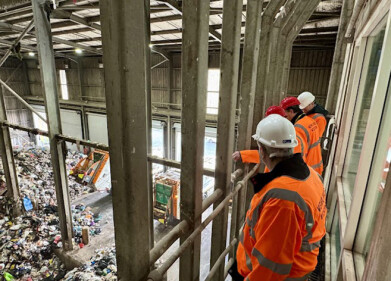Waste management
Masking plastic pollution - How single-use masks are impacting the environment
Dec 14 2021
3.4 billion disposable face masks were discarded each day at the start of 2021, according to a study by Benson, Bassey and Palanisami. While a proven safety measure for protecting public health, we must address the environmental impact of facial coverings. Here Dr Ashlee Jahnke, director of research at biodegradable biopolymer research platform Teysha Technologies, discusses the issues surrounding single-use face masks.
Imports of face masks into the European Union (EU) have more than doubled since the start of the pandemic, according to a report by the European Environment Agency (EEA). The general consensus among medical organisations and the scientific community is that masks help to limit the spread of respiratory viruses like COVID-19. One study, looking into secondary transmission of SARS-CoV-2, found that face masks were 79 per cent effective in preventing transmission.
However, while masks have proven effective at limiting the spread of COVID, they could be causing damage elsewhere. The EEA’s report also finds that an uptake in disposable mask wearing has led to an increase in littering, which can harm wildlife and contribute to the spread of microplastics.
Microplastics, major problem
Wearing masks is incredibly important in helping stop the spread of contagions. However, public health does not have to come at the expense of plastic pollution. The release of microparticles and heavy metals into the environment is one of the greatest risks disposable masks pose.
Disposable medical masks are produced from polymers such as polypropylene and polycarbonate to create three protective layers. The inner layer is made up of soft fibres, the middle layer has a melt-blow filter and the outer layer uses dyed, nonwoven fibres that are water-resistant to create a barrier against droplets.
When these masks begin to degrade, over time or through contact with water, they release microplastic fibres. These fibres are under five millimetres in size and can be ingested by humans and other forms of wildlife. Human consumption of microplastics can lead to issues such as oxidative stress, immunotoxicity and metabolic disturbances. Currently, the full extent of microplastic exposure to humans remains unknown.
The future is bioplastics
19 billion face masks are incinerated in the UK each year. The rest end up in landfills, or are littered across our streets. While some businesses have started reusing plastics to create personal protective equipment (PPE), UK Prime Minister Boris Johnson has stated that recycling materials “is not the answer” as it justifies overproduction and encourages the “industrial addiction” to plastic.
Other solutions include making reusable masks from materials such as cotton. However, there is an argument that these masks do not offer the same level of protection as medical grade options. Priorities need to be devised, handling the pandemic and stopping its spread is the most important thing at the moment. But in the long term, as mask wearing becomes the norm, there needs to be a full investigation into the impact of disposable masks.
The 2019 directive agreed by EU states and Norway to restrict single-use plastics from being produced and sold in the EU came into effect in July 2021. As more anti-plastic legislation is passed around the world, we could see further interest and investment in the bioplastics industry.
Some bioplastic companies, like Teysha Technologies, are going further than developing a single polymer system through investment and working with world leading research scientists.
Teysha’s unique IP is a platform technology that uses sustainable feedstocks in the form of various modified natural-product monomers and co-monomers to generate polycarbonate material. A key feature of this platform is that the material’s physical, chemical and mechanical properties can be tuned. One example of this is developing a system where the main mechanism of polymer degradation is water driven. This allows for the formation of a wide variety of final products with multiple applications.
This technology allows us to remain agile and responsive to unanticipated product demands, such as the sudden need for billions of disposable masks caused by the global pandemic.
Continued use of face-masks is incredibly important to limit the spread of respiratory viruses. However, we must push for further research and development into face-masks if we want to protect the planet as well as public health.
Events
Apr 08 2025 Targi Kielce, Poland
Apr 08 2025 Bahrain
Apr 10 2025 Beijing, China
Apr 10 2025 Beijing, China
Apr 15 2025 Moscow, Russia














